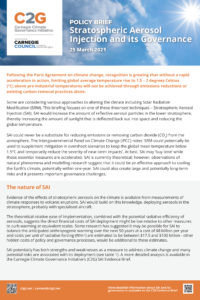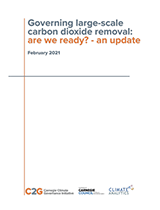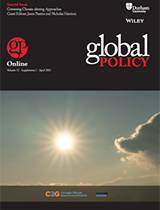Ethics, Governance, and Emerging Technologies
A Conversation with Carnegie Climate Governance Initiative (C2G) and Artificial Intelligence & Equality Initiative (AIEI)
7 December 2021 at 8:00 AM ET
Speakers
Janos Pasztor, Executive Director, Carnegie Climate Governance Initiative
 Janos Pasztor (a Hungarian and a Swiss citizen) is Senior Fellow of the Carnegie Council for Ethics in International Affairs, and is Executive Director of the Carnegie Climate Governance Initiative (C2G).
Janos Pasztor (a Hungarian and a Swiss citizen) is Senior Fellow of the Carnegie Council for Ethics in International Affairs, and is Executive Director of the Carnegie Climate Governance Initiative (C2G).
He has four decades of work experience in the areas of energy, environment, climate change, and sustainable development. Before taking up his current assignment he was UN Assistant Secretary-General for Climate Change in New York under Secretary-General Ban Ki-moon.
Earlier, he was Acting Executive Director for Conservation (2014), and Policy and Science Director (2012-2014), at WWF International. He directed the UNSG’s Climate Change Support Team (2008-2010) and later was Executive Secretary of the UNSG’s High-level Panel on Global Sustainability (2010-2012). In 2007 he directed the Geneva-based UN Environment Management Group (EMG). During 1993-2006 he worked and over time held many responsibilities at the Climate Change Secretariat (UNFCCC), initially in Geneva and later in Bonn.
His other assignments included: the Secretariat of the UN Conference on Environment and Development (Earth Summit ’92); Stockholm Environment Institute; United Nations Environment Programme (UNEP); Secretariat of the World Commission on Environment and Development (Brundtland Commission); the Beijer Institute; and the World Council of Churches.
He has BSc and MSc degrees from the Massachusetts Institute of Technology (MIT).
Cynthia Scharf, Senior Strategy Director, Carnegie Climate Governance Initiative
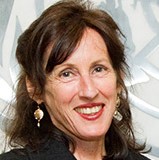 Cynthia Scharf previously served as the head of strategic communications and chief speechwriter on climate change for the United Nations secretary-general from 2009-2016. As a senior member of the secretary-general’s Climate Change Support Team, she played a key role in the secretary-general’s two global climate change summits (2014 and 2009) and advised the secretary-general during the UNFCCC negotiations, including the landmark Paris climate change agreement in 2015.
Cynthia Scharf previously served as the head of strategic communications and chief speechwriter on climate change for the United Nations secretary-general from 2009-2016. As a senior member of the secretary-general’s Climate Change Support Team, she played a key role in the secretary-general’s two global climate change summits (2014 and 2009) and advised the secretary-general during the UNFCCC negotiations, including the landmark Paris climate change agreement in 2015.
Prior to her work on climate change, Scharf worked on global humanitarian and public health emergencies at the UN and with international non-governmental organizations in the Balkans, Africa, the UK, and Russia. She also has private sector experience working in the social impact investing field. Scharf began her career as a journalist in Moscow in the early 1990s covering the collapse of the communist system in the former USSR and Eastern Europe.
Scharf’s articles on politics, the economy, and the environment have been published in The International Herald Tribune, The Wall Street Journal Europe, Los Angeles Times, Christian Science Monitor, Moscow Times, Globe and Mail, and elsewhere. She received her MA from Georgetown University’s School of Foreign Service and speaks Russian.
Anja Kaspersen, Senior Fellow, Artificial Intelligence and Equality Initiative
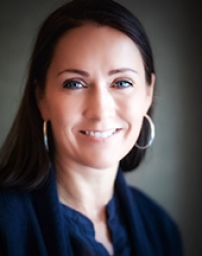 Anja Kaspersen is a Senior Fellow at Carnegie Council of Ethics in International Affairs. She is the former Director of the United Nations Office for Disarmament Affairs in Geneva and Deputy Secretary General of the Conference on Disarmament. Previously, she held the role as the head of strategic engagement and new technologies at the International Committee of the Red Cross (ICRC).
Anja Kaspersen is a Senior Fellow at Carnegie Council of Ethics in International Affairs. She is the former Director of the United Nations Office for Disarmament Affairs in Geneva and Deputy Secretary General of the Conference on Disarmament. Previously, she held the role as the head of strategic engagement and new technologies at the International Committee of the Red Cross (ICRC).
Prior to joining the ICRC she served as a senior director for geopolitics and international security and a member of the executive committee at the World Economic Forum. Kaspersen has also worked in business and has had a rich diplomatic and academic career. She is a published author and speaker. Kaspersen is a strong believer in multilateralism and in the power of science and technology diplomacy to ensure responsible innovation and applications.
She is an alumni International Gender Champion, a member of the IEEE Council on Extended Intelligence and Industry Activity on Life Science Innovation and AI and a member of the International Military Council on Climate and Security.
Wendell Wallach, Senior Fellow, Artificial Intelligence and Equality Initiative
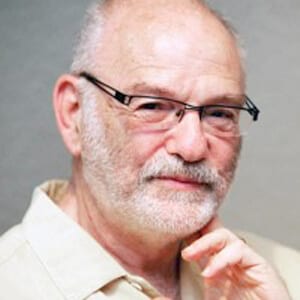 Wendell Wallach is a consultant, ethicist, and scholar at Yale University’s Interdisciplinary Center for Bioethics. He is also a scholar with the Lincoln Center for Applied Ethics, a fellow at the Institute for Ethics & Emerging Technology, and a senior advisor to The Hastings Center.
Wendell Wallach is a consultant, ethicist, and scholar at Yale University’s Interdisciplinary Center for Bioethics. He is also a scholar with the Lincoln Center for Applied Ethics, a fellow at the Institute for Ethics & Emerging Technology, and a senior advisor to The Hastings Center.
Previously, Wallach was founder and president of two computer consulting companies, Farpoint Solutions and Omnia Consulting Inc.
Wallach is the author of A Dangerous Master: How to Keep Technology from Slipping Beyond Our Control and, along with Colin Allen, he is co-author of Moral Machines: Teaching Robots Right From Wrong. He has also published dozens of articles in professional journals.
Moderator
Ronnie Saha, Carnegie New Leader
Prior to joining Facebook, Saha spent over eight years as a management consultant with Deloitte, originally joining the firm’s public finance / emerging markets practice where he advised ministries of finance and central banks throughout Africa and Asia on macroeconomic planning and public finance matters. In the post financial crisis period, he advised systemically important financial institutions (SIFIs) on stress-testing and capital and liquidity management and later helped to launch Deloitte’s strategic risk practice, designed to help organizations manage the impacts of business model innovation, macroeconomic trends, and geopolitical shifts on their corporate strategies.
Previously, Saha spent several years in the international economic development sector, with NGOs and think tanks, including serving as special assistant to the president of the International Rescue Committee (IRC) and as a researcher at Harvard University’s Hauser Institute for Civil Society.
He holds a BA from Kenyon College and MPP (international trade and finance) from the John F. Kennedy School of Government at Harvard University.
Highlights
Putting the Climate-Altering Technologies Discussion on the Agenda
Janos Pasztor
Executive Director, Carnegie Climate Governance Initiative
Ethical Considerations of Climate-Altering Technologies
Cynthia Scharf
Senior Strategy Director, Carnegie Climate Governance Initiative
Responsible Research & Development for AI
Anja Kaspersen
Senior Fellow, Aritifical Intelligence and Equality Initiative
Automation, AI, & Ethical Tradeoffs
Wendell Wallach
Senior Fellow, Artificial Intelligence and Equality Initiative
Empowering Ethics at Carnegie Council
Wendell Wallach
Senior Fellow, Artificial Intelligence and Equality Initiative
